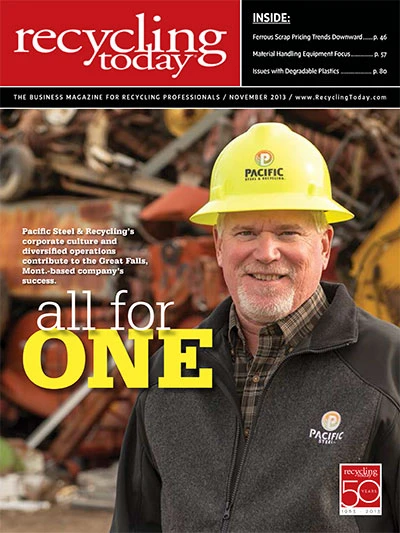|
|
When several of China’s government agencies banded together to create Operation Green Fence, environmental protection was touted as the key goal behind the heightened scrutiny of secondary commodity shipments into China. Subsequent statements from customs and inspections officials have made it clear that Green Fence also has a “follow the money” aspect. While keeping out low-quality and especially contaminated shipments is one desired result, so is ensuring that scrap buyers are properly representing the full taxable value of the containers of material they import. Scrap metal, paper and plastic exporters in North America and scrap buyers in China agree that the inspectors enforcing Green Fence have taken their task seriously, if not always consistently, from port to port. Transactions have been delayed, renegotiated and in some cases cancelled throughout the year because of the increased scrutiny brought about by Operation Green Fence. In the plastic scrap sector in particular, some North American exporters have had difficulty accessing the Chinese market. As well, manufacturers in China who rely on imported plastic scrap feedstock are struggling to make it through 2013. Although some initial statements from Chinese government employees referred to Green Fence as being phased out in late 2013, the operation’s timeline may well be extended if customs officials are convinced it is yielding additional tax revenue. For North America’s recyclers, if Green Fence extends into 2014, it could mean shipping to China will remain a less-favored option, especially if they have experienced uncertainty and unpredictability when sending similar loads to different ports or even to the same port in different months. In the abstract, many recyclers describe their operations as manufacturing processes and they strive for the highest levels of product quality and uniformity. Many scrap consumers have long held recyclers to these same high standards, so there is nothing novel about meeting tight specifications. From this point of view, perhaps Green Fence can be seen as a long-term positive—the closing of a loophole that allowed some industry practitioners to get away with giving less than their best effort while making minimal investments in quality. As the year of the Green Fence, 2013 will yield bad memories for recyclers on all bands of the quality spectrum. It remains to be seen whether recyclers who have responded earnestly with investments to upgrade quality will be rewarded with a smoother path in 2014. |

Explore the November 2013 Issue
Check out more from this issue and find your next story to read.
Latest from Recycling Today
- Aqua Metals secures $1.5M loan, reports operational strides
- AF&PA urges veto of NY bill
- Aluminum Association includes recycling among 2025 policy priorities
- AISI applauds waterways spending bill
- Lux Research questions hydrogen’s transportation role
- Sonoco selling thermoformed, flexible packaging business to Toppan for $1.8B
- ReMA offers Superfund informational reports
- Hyster-Yale commits to US production






